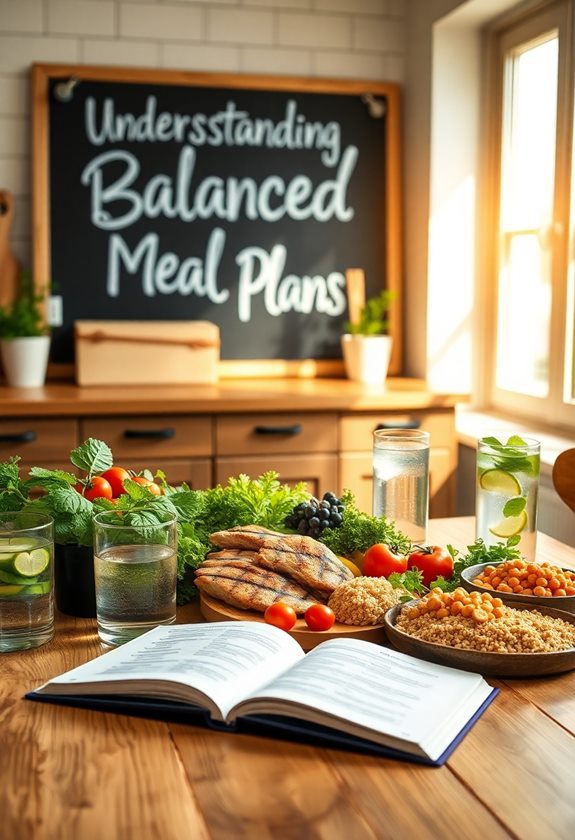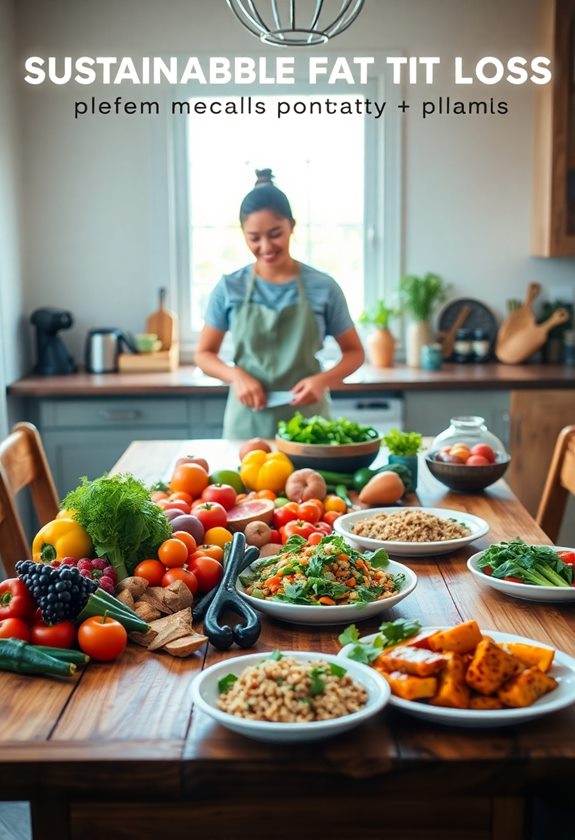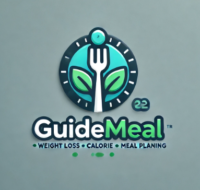Balanced meal plans promote sustainable fat loss by giving you the right nutrients while keeping meals tasty and satisfying. Have you ever noticed how eating colorful veggies, lean proteins, and whole grains can control cravings? It's true! These foods help fuel your energy and support your mood. Plus, planning meals cuts stress and saves time. Think about how much easier it is when you know what you'll eat each day! By focusing on variety and moderation, you'll enjoy your meals more. Ready to explore ways to create your own meal plan? There's so much more to discover! 🥗✨
Key Takeaways
- Balanced meal plans provide essential nutrients, preventing cravings and supporting satiety for effective fat loss.
- Incorporating a variety of foods enhances meal enjoyment, promoting long-term adherence to healthy eating habits.
- Lean proteins and whole grains help maintain muscle mass and energy levels, crucial for sustainable fat loss.
- Meal planning reduces decision-making stress and saves time, allowing for consistent and organized healthy eating.
- Nutrient-dense foods contribute to better mood and confidence, reinforcing commitment to weight loss goals.
Understanding Balanced Meal Plans

A balanced meal plan is essential for effective fat loss, as it provides your body with the right nutrients while keeping you satisfied. But what does a balanced meal plan really mean? It's all about variety and moderation. You want to include different food groups without going overboard.
Imagine having a plate filled with colorful veggies, lean proteins, and whole grains. Doesn't that sound delicious? By mixing these foods, you're not only getting essential vitamins and minerals, but you're also helping your body burn fat more efficiently. Plus, balanced meals can keep you full longer, which means fewer cravings for unhealthy snacks.
Have you ever tried eating just one type of food? It can get boring fast! A balanced meal plan helps you enjoy your meals and stay motivated. When you enjoy what you eat, you're more likely to stick with it.
Key Components of Balanced Meals
What makes a meal truly balanced? It's about including the right mix of nutrients that your body needs. When you think of a balanced meal, you should consider these key components:
- Lean Proteins: Foods like chicken, fish, or beans can help build muscle and keep you full.
- Whole Grains: Brown rice or whole wheat bread provide energy and fiber to support digestion.
- Healthy Fats: Avocados, nuts, or olive oil can keep your heart healthy and enhance flavor.
- Fruits and Vegetables: These are packed with vitamins and minerals, plus they add color and crunch!
- Hydration: Don't forget to drink water! Staying hydrated is essential for overall health.
Imagine sitting down to a meal that has a bit of everything. Wouldn't it feel satisfying? Balancing your meals not only makes them enjoyable but also fuels your body properly. You're not just eating to fill up; you're fueling your day. So, next time you plan your meals, think about these components and how they can come together on your plate. Your body will thank you! 🍽️
Benefits of Sustainable Fat Loss

Eating balanced meals plays a significant role in achieving sustainable fat loss. When you focus on nutrient-rich foods, you're not just shedding pounds; you're also improving your overall health. Sustainable fat loss means you're not only losing weight but keeping it off for the long haul. It helps you feel more energetic, boosts your mood, and enhances your confidence.
Here's a quick look at the benefits:
| Benefits | Description |
|---|---|
| Improved Energy Levels | Balanced meals fuel your body effectively. |
| Better Mood | Nutrients support your brain health. |
| Enhanced Confidence | Seeing results boosts your self-esteem. |
| Reduced Cravings | Nutrient-dense foods keep you satisfied. |
| Long-Term Health | Helps prevent diseases like diabetes. |
How Meal Plans Support Consistency
When you establish a meal plan, you're setting yourself up for success in maintaining consistency with your fat loss goals. A meal plan acts as your roadmap, guiding you through daily choices. It helps you avoid the chaos of last-minute decisions that can lead to unhealthy eating. Think about how much easier it is to stick to your goals when you have a clear plan!
Here are some ways meal plans support your consistency:
- Reduces Stress: You won't have to wonder what's for dinner every day.
- Saves Time: Planning ahead cuts down on daily cooking time.
- Controls Portions: It helps you keep track of how much you're eating.
- Boosts Confidence: Knowing what to eat makes it easier to stay on track.
- Encourages Variety: A good meal plan guarantees you enjoy different foods, preventing boredom.
Overcoming Common Weight Loss Challenges

Many people face common challenges on their weight loss journey, but recognizing and addressing these obstacles can make a significant difference. Have you ever felt stuck in a rut, unsure of how to move forward? You're not alone! Many struggle with cravings, time management, or lack of motivation.
When those cravings hit, it's easy to give in. Instead, try finding healthier alternatives or keeping busy with a hobby. This helps you stay on track without feeling deprived.
Time management can also be tricky. Are you juggling work, family, and everything in between? Planning your meals ahead can make a big difference. Batch cooking on weekends means you'll always have healthy options ready to go.
Lastly, motivation can wane. Remember why you started this journey. Visualize your goals and celebrate small victories along the way. Every step counts!
Facing these challenges head-on is key. Consider sharing your struggles with friends or joining a supportive community. You don't have to do this alone! By addressing these common hurdles, you'll pave the way for sustainable fat loss and a healthier lifestyle. 🌟
Tips for Creating Your Own Meal Plan
Creating a personalized meal plan can simplify your weight loss journey and keep you motivated. When you take the time to craft a plan that suits your lifestyle, you'll find it easier to stick to your goals. So, how do you get started? Here are some tips to help you create your own meal plan:
- Know your calorie needs: Calculate how many calories you need daily for weight loss.
- Choose whole foods: Focus on fruits, vegetables, lean proteins, and whole grains for balanced nutrition.
- Plan for variety: Mix up your meals to avoid boredom and guarantee you get a range of nutrients.
- Prep ahead: Spend time each week preparing meals and snacks, making it easier to stay on track.
- Listen to your body: Pay attention to hunger cues and adjust portion sizes as needed.

